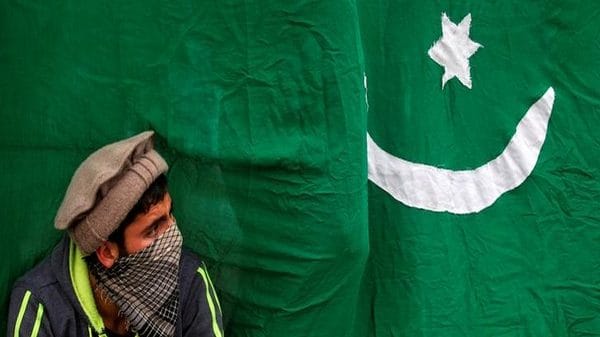New Delhi: Coke Studio Pakistan tapped into the diversity of the nation, bringing different styles of music on one platform. And that’s what Pakistan is attempting to do in a ‘new’ version of its national anthem to mark the 75th anniversary of its independence.
Pakistan’s Qaumi Taranah or national anthem, ‘Pak Sarzameen’, which translates to ‘Thy Sacred Land’, is undergoing a revamp — not in essence, meaning or lyrics, but its music and singers, with the aim of encapsulating the country’s ‘new diversity’. Dozens of singers and musicians representing Pakistan’s various districts and music styles including rap and folk are part of the line-up. A government-led Steering Committee was formed in July 2021 to re-record the original national anthem. It seeks to reflect “updated inclusivity in sound, voice and spirit, while ensuring the sanctity of the original words and composition,” the committee’s official Instagram account said in a post.
But not everyone is impressed. Lahore-based columnist Ammara Ahmad pointed out how there is an element of tokenism in it, saying that in mainstream culture and news, they never hear from Balochistan, Sindhis or Pashtuns. “Their films, dramas, music and of course news is absent from mainstream media which buds out from centres like Lahore, Karachi and Islamabad. We all know that the situation in Balochistan is critical and the news from there is completely censored,” she told ThePrint.
Also read: Allama Iqbal: Pakistan’s national poet & the man who gave India ‘Saare jahan se achha’
Diverse voices, genre, regions
Pak Sarzameen was written by eminent Urdu poet Abdul Hafeez Jalandhari in 1952 and was officially adopted on 16 August 1954. The musical score was composed much earlier, in 1949 by Ahmad G. Chagla and was accepted by Prime Minister Liaquat Ali Khan soon after.
Pak Sarzameen’s first recording featured eleven singers including three women. Written in Persian and having only one Urdu word “ka”, the playing time of Pak Sarzameen is 1 minutes and 20 seconds and was composed using 21 musical instruments and 38 different tones.
The new national anthem will be sung by a diverse set of musicians, including 12 women singers. The voices range from traditional, folk, pop, rock, hip-hop, fusion, ghazal, orchestra, Pashto, classical, semiclassical, and seasoned playback singers to emerging talents from various regions of Pakistan such as Balochistan, Khyber Pakhtunkhwa, ‘Azad Kashmir’ (Pakistan-occupied Kashmir), Gilgit Baltistan, Sindh and many others.
Balochi hip-hop artist Abid Brohi, famous for Sibbi song; internationally renowned Punjabi folk singer Arif Lohar, famous for Coke Studio’s ‘Alif Allah (Jugni)’; and versatile folk singer Sindh Taj Mastani, who can play two folk musical instruments simultaneously — Yaktara with her right hand and Khartal with her left — are some of the singers. Sana Tajik, a rising Pashto singer from Khyber Pakhtunkhwa, is also one of the singers.
The list also includes Coke Studio’s ‘Jogi’ fame singer Fariha Pervez; prominent singer Bilal Saeed, popular for ‘Khair Mangdi’; RJ Jia Nauman from Islamabad and many others.
“The national anthem is going to be revamped according to the times, it will be more powerful and evolutionary. The music has progressed, so the national anthem also needs to be universal and up to date,” Pakistani actor Iffat Omar told ThePrint.
Wajiha Ather Naqvi, singer-songwriter and music anthropologist from Karachi, shared the experience of singing the national anthem together with artists from various backgrounds. “It was a very special moment for me to participate in this project, particularly singing together with singers (including the more seasoned/mainstream to lesser known artists) from across Pakistan truly reflecting its cultural diversity. Everyone carried their unique individual ethnic identities with pride but at the same time singing the same anthem together in one voice, altogether in perfect pitch and unison gave us all goosebumps.”
“I met many new artists from different minority groups- a Khwaja sira member from Lahore, from Quetta I met a Sikh and a musician/filmmaker that spoke hazaragi and farsi,” Naqvi said.
Also read: The national anthem is a poem. Stop trying to turn it into a cartographic document
‘Retelling of diversity or cosmetic treatment’
The revamped national anthem is being looked at as a retelling of Pakistan’s diversity with the ethos of the song intact. Pakistani journalist Zarrar Khuhro called the change ‘real and visceral’ and suggestive of evolution of Pakistan as a country.
“There is no harm in change, rather it is real and visceral and suggests evolution. It’s not a reinterpretation of the anthem, rather a retelling of the country’s diversity,” Khuhro said, speaking to ThePrint. However, he is concerned about how singers, voices and music of varied backgrounds will be integrated in the anthem without compromising its essence.
Mohsin Sayeed, Pakistani journalist-turned-designer and commentator, called the revamp ‘cosmetic’, saying after 75 years of independence, the country is reeling with massive economic and political instability and that this was not the time for such things. There should be self-introspection of where the country is headed, he said.
“In 2022, when our country is going through such an economic crisis with people crying because of sky-rocketing inflation, dying as floods are wreaking havoc in Karachi and Balochistan. This is a time of collective self-reflection especially at the government level. This is not going to uplift the morale of the nation,” Sayeed told ThePrint.
“There is no need to record a national anthem to include one token singer from all parts of Pakistan. When the country is undergoing such a major crisis, this is just a cosmetic treatment. Independence Day should not be celebrated but commemorated instead,” he added.
(Edited by Prashant)






